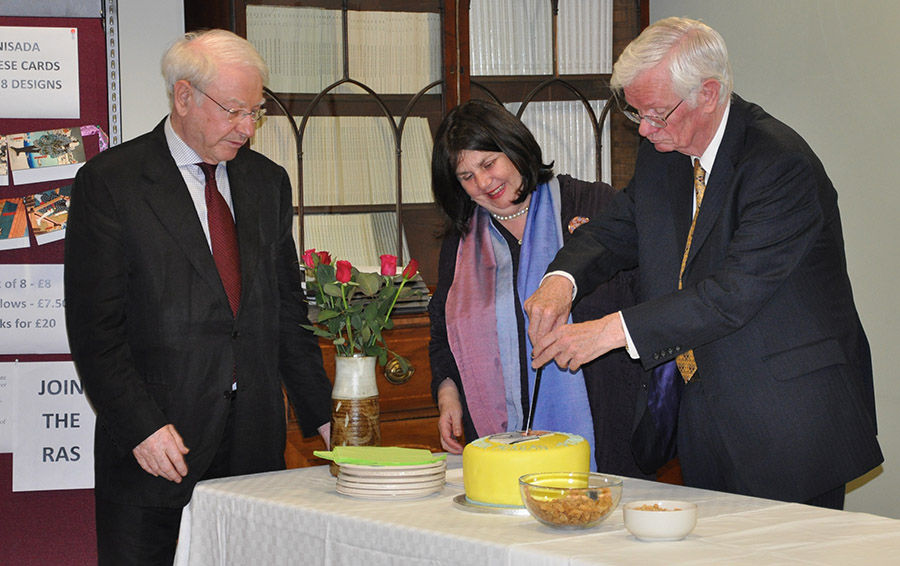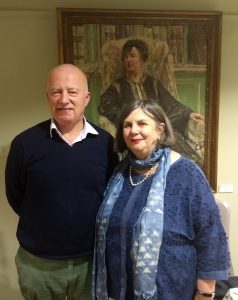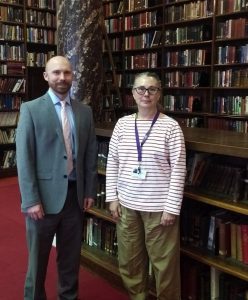Professor David O. Morgan
It is with great sadness that we report the death of Professor David O. Morgan this week. Professor Morgan was an expert in the field of Mongol studies and also a good friend to the Royal Asiatic Society, serving as editor of its Journal. He was born in 1945 and educated at Rugby School. He graduated from Oxford and gained his doctorate from the School of Oriental and African Studies (SOAS). He taught at SOAS for twenty years, before moving to the University of Wisconsin where he remained until retirement in 2010, but continued serving there as Professor Emeritus until 2013, when he returned to live in England.
Professor Morgan was known as both an excellent teacher but also an erudite author. His book, The Mongols, remains the standard text even though it was published in 1986, with further expansion of the work in 2007. In 2016, the Royal Asiatic Society celebrated his achievements with the publication of a festschrift within its Journal. Entitled, The Mongols and Post-Mongol Asia: Studies in Honour of David O. Morgan, the winter and spring issues were combined to produce an extended festschrift to honour Professor Morgan and to acknowledge his immeasurable contribution to Mongol Studies. The volume consisted of articles from twenty-nine eminent scholars, who wrote on topics connected with the Mongols and their impact on communities and cultures in places as far apart as Syria and China.

The Society, as are so many of his past students, is very grateful for all the help that he has given. He is remembered for his kindness and genial disposition as well as his unique contribution to the field of Mongol studies. We offer our condolences to his family at this time.
In other news this week, on Tuesday 22 October, the Society was delighted to welcome historian Dr Philip Mansel to lecture on “The Sun King and the Sultan: Louis XIV and the Ottoman Empire”. Drawing on his book King of the World: the life of Louis XIV, published by Penguin earlier this year, Dr Mansel discussed the history of relations between the French and Ottoman Empires between the sixteenth and eighteenth centuries. A strategic relationship motivated by realpolitik, in discussing the intricacies of diplomatic relations Dr Mansel revealed some surprising details, often illustrated with images of stunning artworks from the period. The lecture was followed by a Q&A with the author and a reception.

RAS Librarian, Edward Weech, was also lecturing this week, at the Royal United Services Institution, to the Association of Pall Mall Libraries. He was invited to lecture on the process of digitization, how to facilitate, possible pitfalls, and the experience of setting up the RAS Digital Library. On a suitable theme of experts in Asian studies you might like to see one of the photographic collections now available on our digital library: Photo.24: Portrait Photos Of Orientalists.

This coming week, on Tuesday 29 October, the winner of the second Bayly Prize will be announced. The Bayly Prize was established by the Royal Asiatic Society to celebrate the distinguished contributions of Professor Sir Christopher Bayly to global history, especially to the study of Asia and is awarded for an outstanding PhD dissertation on an Asian topic completed at a British university in the year prior to the award. The shortlist has already been announced and we look forward to hearing who will be this year’s recipient of the prize. If you wish to attend this event we would ask that you inform Amy Riach at ar(at)royalasiaticsociety.org as soon as possible.
Also, on Thursday 31 October, 5.30pm, there is a ‘brainstorming event’. The Society will celebrate its bicentenary in 2023 and as we begin to make preparations for that event we invite members of the Society to hear about plans already in place and to make suggestions for suitable ways of celebrating. This event is open to Members of the Society only.
